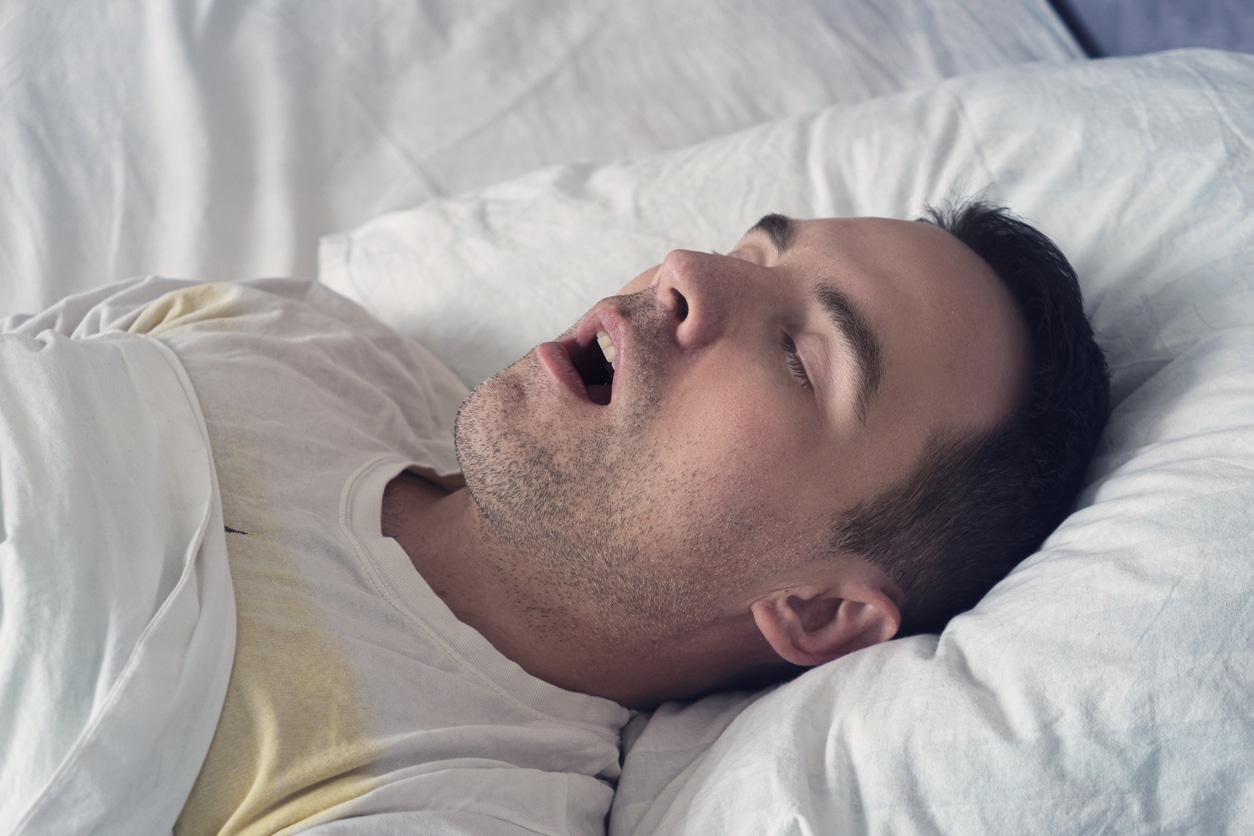Sleep is an essential part of our well-being, impacting both mental and physical health if you don’t get enough sleep. If you frequently feel tired during the day or experience issues like snoring or trouble staying asleep, you might be wondering why, and a sleep study could be necessary to understand.
A sleep study is test that helps diagnose sleep disorders by monitoring brain activity, breathing patterns and other bodily functions while a person is asleep. A sleep study is used to diagnose various sleep disorders, with the most common being sleep apnea. In fact, approximately 30 million U.S. adults have sleep apnea.
About Sleep Conditions

Sleep apnea occurs when breathing repeatedly stops and starts throughout the night and is often accompanied by loud snoring or choking sounds. Left untreated, it can lead to health issues, including high blood pressure, heart disease and stroke.
Other conditions that can be diagnosed with a sleep study include insomnia, narcolepsy, restless legs syndrome and periodic limb movement disorder.
When to Consider a Sleep Study
If you’re consistently waking up feeling unrefreshed or tired during the day despite spending enough time in bed, it could be a sign of a sleep disorder. People with sleep apnea often experience excessive daytime sleepiness, even after what seems like a full night of sleep.
Other signs include:
- Loud, disruptive snoring that wakes you up or disturbs others
- Breathing pauses or choking sounds during sleep
- Restless sleep, frequent waking
- Trouble falling or staying asleep
- Bouts of overwhelming sleepiness during the day
Depending on the suspected cause, a sleep study can be conducted overnight in a clinic or at home. During the study, a person will be asked to sleep normally while sensors collect data on sleep stages and bodily functions. The results are then analyzed to determine whether you have a sleep disorder and what treatment might be necessary.
Sleep studies are effective at assisting people with better sleep. If you are a loved one has noticed signs of a potential sleep disorder or disruption, talk with a doctor about sleep study options. Consider a first consultation with Ear, Nose & Throat Associates today.